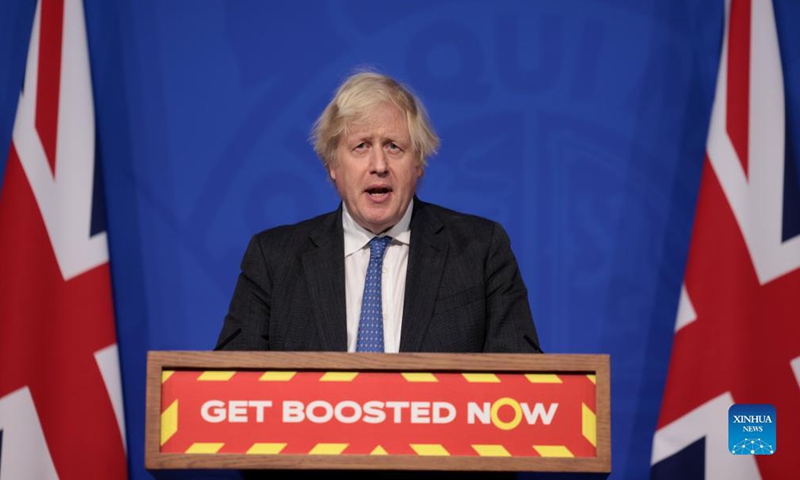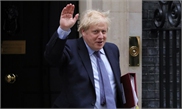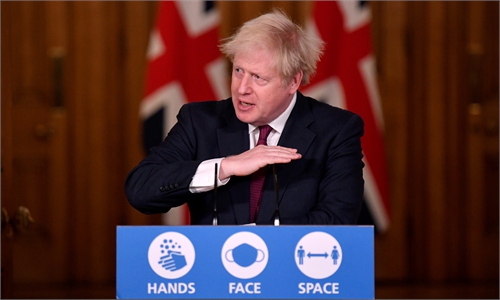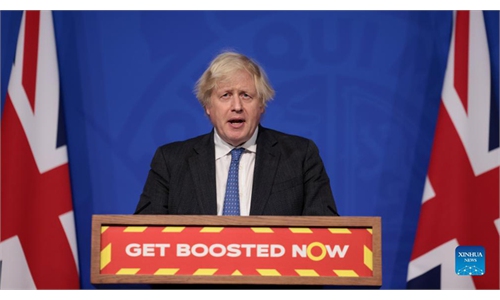Boris Johnson scrapes no-confidence win
Downing Street weakened as up to 148 Conservative MPs vote against PM

British Prime Minister Boris Johnson speaks at a COVID-19 press conference in the Downing Street media briefing room in London, Britain, Dec. 15, 2021. Britain reported 78,610 new coronavirus cases, the highest daily number since the start of the pandemic, bringing the total number of coronavirus cases in the country to 11,010,286, according to official figures released Wednesday. (Simon Dawson/No. 10 Downing Street/Handout via Xinhua)
British Prime Minister Boris Johnson survived a confidence vote on Monday but a large rebellion in his Conservative Party over the so-called "partygate" scandal dealt a blow to his authority and leaves him with a struggle to win back support.Johnson, who scored a sweeping election victory in 2019, has been under increasing pressure after he and staff held alcohol-fueled parties in his Downing Street office and residence when Britain was under lockdowns to tackle the COVID-19 pandemic.
The vote was a blow to Johnson, with 41 percent of his lawmakers casting ballots against his leadership after months of scandals and gaffes that has raised questions over his authority to govern Britain and knocked his standing among the public.
But Johnson, a master of political comebacks, instead described the vote as a "decisive result" meaning that "as a government we can move on and focus on the stuff that I think really matters to people."
"We can focus on what we're doing to help people with the cost of living, what we're doing to clear the COVID[-19] backlogs, what we're doing to make streets and communities safer by putting more police out," said Johnson, who for weeks has tried to move the national conversation away from "partygate."
It is a change of fortune for Johnson and underlines the depth of anger against him. He was met with a chorus of jeers and boos, and some muted cheers, at events to celebrate the Platinum Jubilee of Queen Elizabeth II in recent days.
Several lawmakers said the vote, which saw 211 lawmakers cast ballots in favor of Johnson against 148, was worse than expected for a prime minister, once seemingly unassailable after winning the Conservatives' largest majority in more than three decades.
"Boris Johnson will be relieved at this vote. But he will also understand that the next priority is to rebuild the cohesion of the party," David Jones, a former minister, told Reuters. "I am sure he will be equal to the challenge."
Others were less optimistic, with one Conservative lawmaker saying on condition of anonymity: "It is clearly much worse than most people were expecting. But it is too early to say what will happen now."
Roger Gale, a long-time critic of Johnson, urged the prime minister "to go back to Downing Street tonight and consider very carefully where he goes from here."
By winning the confidence vote, Johnson has secured a reprieve for 12 months when lawmakers cannot bring another challenge.
But his predecessor Theresa May scored better in her 2018 confidence vote only to resign six months later.
A majority of the Conservatives' lawmakers - at least 180 - would have had to vote against Johnson for him to be removed.
Reuters



